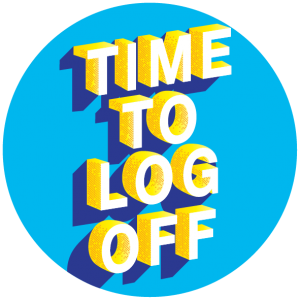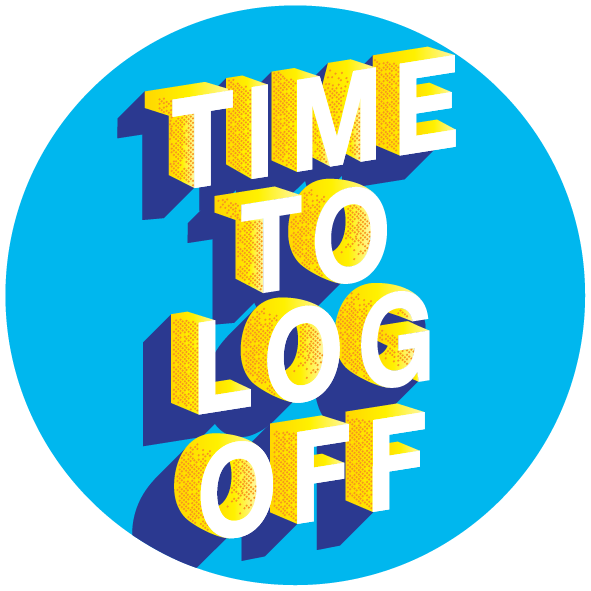
24 Feb A Brief History of Digital Detox
Users have been concerned about the impact of screentime on our mental and physical health since the creation of the WorldWideWeb. We’ve trawled through the records to show you that the history of anxiety about screens, and attempts to spend time off them, is as long as the history of screens itself.
The History of Digital Detox:
1998
With the creation of the WorldWideWeb in the early-90s researchers (primarily psychologists and anthropologists) first started to suggest that it might not be a wholly beneficial invention, with the early emphasis being on the “overuse” phenomena and internet addiction and dependency. Dr Kimberley Young penned: ‘Caught in the net: how to recognize the signs of Internet addiction–and a winning strategy for recovery‘, and proposed one of the first sets of criteria to detect Internet addiction. Any individual who fulfilled five of the following eight criteria would be regarded as Internet addicted:
- Preoccupation with the Internet;
- A need for increased time spent online to achieve the same amount of satisfaction;
- Repeated efforts to curtail Internet use;
- Irritability, depression, or mood lability when Internet use is limited;
- Staying online longer than anticipated;
- Putting a job or relationship in jeopardy to use the Internet;
- Lying to others about how much time is spent online; and
- Using the Internet as a means of regulating mood.
2008
China became the first country in the world to classify ‘internet addiction disorder’ as a mental illness. Since then the government estimates 24 adults and children have been diagnosed and over 300 military-style bootcamps have sprung up all over the country to enforce drastic and draconian digital detox methods.
2009
When early social media platforms launched in the early-00s; LinkedIn (2002), YouTube (2005), and MySpace (2003), concerns shifted to the impact these types of applications might be having on our brains. A group of researchers produced a paper entitled: ‘Social network and addiction’, indicative of the worry social media addiction was beginning to cause.
2012
A study found that around 60% of Facebook users had made a conscious effort to voluntarily take a break from Facebook for a time period of several weeks or more. This early form of digital detox was referred to the as ‘media refusal’, with non-users known as ‘social media rejectors’.
Camp Grounded launched its first digital detox retreat in California with 10 guests.
2013
Former Googler Tristan Harris launched the Center for Humane Technology, formerly called Time Well Spent, to spread awareness and talk about the aspects of technology that are often ignored, such as attention and distraction and their effects on the user
2014
Our founder, Tanya Goodin, responded to the growing concerns coming from North America and Asia about our excessive attention to screens and founded Time to Log Off in the UK. We’ve spent the past six years collecting research and resources on the subject to share with our community.
2015
A survey conducted by Deloitte found that around 59% of smartphone users checked a social media platform in the five minutes before going to bed, and within 30 minutes of waking up.
A 2015 review concluded there was a probable link between basic psychological needs and social media addiction. “Social network site users seek feedback, and they get it from hundreds of people—instantly. It could be argued that the platforms are designed to get users ‘hooked‘.”
The first digital detox retreat was run by Time To Log Off in Europe, in October of this year.
2016
A reduced sense of wellbeing was found in teenagers who passively, rather than actively, used social media. Research by Chassiakos, Radesky, and Christakis showed that the manner of social media use was the key factor, rather than the amount of time engaged. A decline in well-being and life-satisfaction was found in older adolescents who passively consumed social media, but these were not found in those who were more actively engaged.
2017
Facebook admitted that this passive consumption of social media, described in the 2016 research, could be harmful to mental health, although they said active engagement could have a positive effect. An Oxford University study showed that digital use can be seen as conforming to a ‘Goldilocks effect‘ – with both spending too much and too little time on screens having a negative impact on wellbeing. It suggested that moderate use could have positive effects in terms of connectivity, which we have always pointed out at Time to Log Off.
 Our first book, Off: Your Digital detox for a Better Life was published, one of the very first titles looking at the reasons for digital detox – and how to do one, and is now translated into seven languages.
Our first book, Off: Your Digital detox for a Better Life was published, one of the very first titles looking at the reasons for digital detox – and how to do one, and is now translated into seven languages.
2018
An Organisation for Economic Co-operation and Development (OECD) report noted the benefits of ‘structured and limited’ internet use in children and adolescents for developmental and educational purposes, but found that excessive use could have a negative impact on mental wellbeing, leading to discussions about what excessive use looked like and what form breaks from screens should take.
2019
Radesky and Christakis, published research which suggested that there are developmental risks when young children have too much access to screens too early. There was also a review of the research carried out to date and though there have been various methodical critiques the conclusion was that there are concrete connections between screen time and health problems, whilst limited use led to some social benefits. Researchers also found that a majority of adults in the US use Facebook and 60% of those have made an active effort to use it less in recent times.
Social media platforms such as Instagram began to explore alternative methods, such as making likes on a user’s post invisible to the user, to shift the focus away from constant notifications and likes.
Digital detox: where now?
Clearly we’re just at the beginning of our relationship with the digital detox. As concerns about excessive time spent on screens grows, so to is the impulse to want to spend more time away from them. We’re committed to spreading information and resources to anyone who wants to get better tech:life balance. Join us and sign up to our community to get all the latest information and research as it becomes available.






Sorry, the comment form is closed at this time.